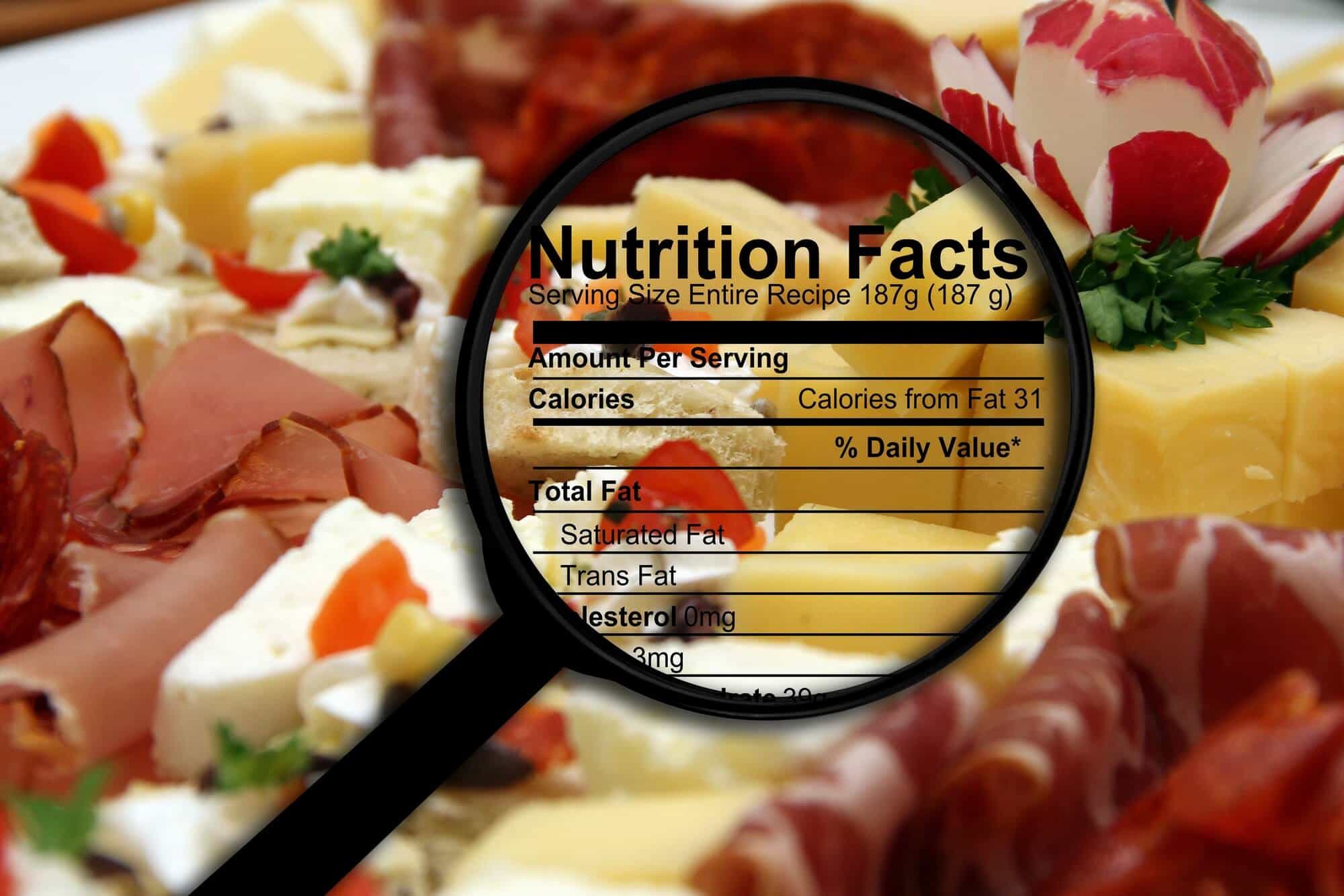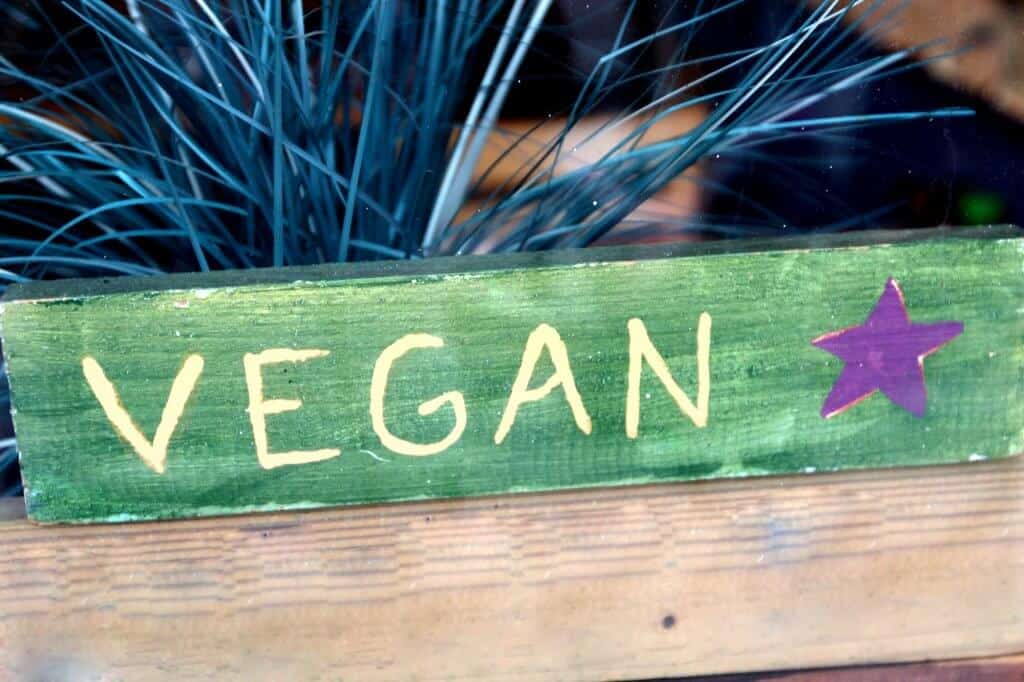
A growing number of people are exploring the concept of veganism and it’s many benefits.
They are particularly interested in how it could improve not only their health but their life in general, as well as the ways it improves the lives of animals.
But, many often wonder….is it possible to eat vegan on an Omad Diet?
Yes, you can.
However, there are many concepts, supplements, and foods to aware of on an Omad Diet Vegan Diet.
Let’s take a look at what veganism is, what benefits it has, and how to eat a one meal a day vegan diet.
What is Veganism?
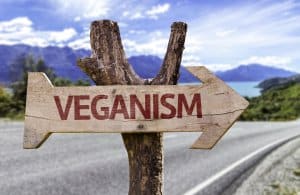
Veganism is more than just a dietary concept followed by millions of people around the world.
It is a philosophy that confirms a person’s dedication to animal rights.
The idea of veganism centers around not only avoiding eating animal products but also never using products that caused suffering to animals. For example, leather clothing is not purchased by vegans because it comes from an animal’s skin.
Many vegans will also refuse medicines that have been tested on animals and may avoid or protest anything that causes animal harm.
For example, some vegans may have issues with horse-drawn carriages, dog racing, or other sports that use animals.
However, not all vegans are as strict. In fact, veganism is a diverse philosophy that allows a diverse range of viewpoints and beliefs.
It is also essential to understand that eating a vegan diet does not make a person a follower of veganism. While a vegan diet is vital to this philosophy, it is only one part of it.
A real vegan avoids anything that causes animal suffering.
Many also work hard to find ways to end this suffering and often try to educate people on these issues.
The Origination of Veganism
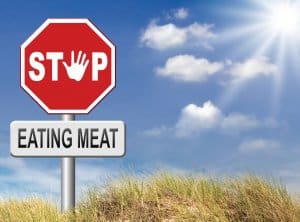
The concept of veganism is a lot newer than you might expect. While the idea of vegetarianism was nothing new by 1949, that was the year that the concept of veganism was defined.
In that year, Leslie J. Cross of the Vegan Society suggested that they craft a simple philosophy.
He defined veganism as: “[t]he principle of the emancipation of animals from exploitation by man.” This exploitation consisted of any actions that could harm or use an animal in any way.
Later on, The Vegan Society expanded this definition to include the phrase “to seek an end to the use of animals by man for food, commodities, work, hunting, vivisection, and by all other uses involving exploitation of animal life by man.”
This expanded definition made their purpose more clear and gave them a series of goals to achieve. The vegan diet, which had originated in 1944 when The Vegan Society began, was just the stepping stone in this process.
However, this philosophy had expanded over the years and was updated in 1979 when The Vegan Society registered as a charity. Their new definition of veganism stated that it was a “philosophy and a way of living” that would eliminate all exploitation of animals, as far as is possible and practical.
They were also dedicated to the development of animal-free alternatives to products that used animals. This philosophy was design not only for the benefit of animals but for humanity in general.
Beyond the vegan diet (which is what I am going to discuss in this article), there are many other ways that vegans try to alleviate the suffering of animals. These actions include:
- Using medicines that were not tested on animals
- Donating to medical charities that support animal right
- Avoiding clothing and products that use animals
- Avoiding entertainment that exploits animals, such as zoos or aquariums
These practices are all part of the philosophy and lifestyle decisions that inform the beliefs of a dedicated vegan.
That said, you don’t need to follow all of these guidelines if you want to start a vegan diet.
Many people follow a vegan diet for health reasons and avoid other animal products as much as possible. However, they may not try to develop alternatives for animal products or seek to educate others.
Ultimately, what you get out of veganism depends on a variety of factors.
If you are genuinely concerned about animal exploitation and want to commit to an animal-free life, you can commit to the concept of complete veganism.
However, you can also follow the dietary guidelines and lifestyle suggestions that I will explore throughout this article. Doing so is likely to improve your health in many ways.
How Can Omad Vegan Diets Help You Lose Weight?
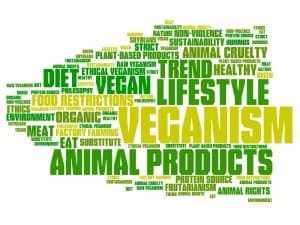
Many people start out on a vegan diet because they want to lose weight and get into shape.
A growing number of studies are showcasing the fact that vegan diets are perhaps the most effective way to lose weight.
I’ll take a look at two studies here to showcase just how effective vegan foods can be for weight loss.
Before discussing these studies, though, I think it is important to state that the results you achieve while on this diet will vary massively depending on how much exercise you perform.
Few, if any, weight-loss programs are effective without exercise. So make sure that you integrate at least 15-30 minutes of exercise into your day to get into shape.
Studies Show Vegan Diets Produce Weight Loss
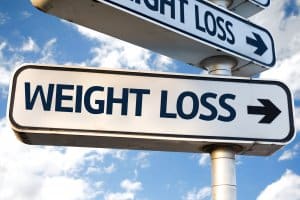
In a recent study published by Science Daily, it was found that vegan diets were much more effective for losing weight than those that included meat.
In fact, the study found that sticking to this type of diet was twice as effective for weight loss, meaning that you would lose double the weight you would if you ate meat while on a diet.
This study was undertaken at the Physicians Committee for Responsible Medicine in Washington DC. It was headed by Dr. Hana Kahleová, who is the Director of Clinical Research at this center.
She chose 74 subjects who had type 2 diabetes and split them up into two different groups. The first received just 500 calories per day on a vegan diet while the second received 500 calories on a standard anti-diabetic diet.
When the study was over, the subjects who had eaten a stricter vegan diet had lost double the weight of the people in the other group.
The only difference between these study groups (beyond the natural metabolic differences between individuals) was the focus on a vegan diet, meaning that the researchers were confident that it was the cause of the extra weight loss.
Plant-Based Diets are Very Effective for Weight Loss
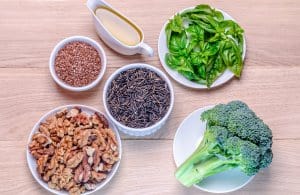
In another study, entitled “A Plant-Based Diet for Overweight and Obesity Prevention and Treatment,” a variety of studies were compiled to check how effective plant-based diets or PBDs were for helping people lower their BMI.
They also gauged how effective this diet was for preventing obesity and serious weight gain.
What they found was very promising.
These specialists concluded that individuals who ate PBDs had lower BMI levels than those who ate standard diets. This fact was true even if the people in these diets ate the same number of calories and exercised in similar ways.
As a result, they believed that PBDs were one of the best ways to manage excessive weight.
Beyond that, they were also enthusiastic about the benefits it could provide patients who were attempting to prevent severe disease. They found that PBDs not only helped a person lose weight but prevented weight gain.
Even better, it could help stop heart disease and other conditions that were so common in those who had higher BMI levels.
Why Vegan Diets are So Effective
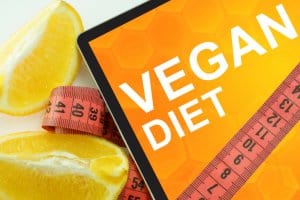
The average vegan diet removes as much fat from your diet as possible while providing your body with a solid concentration of vitamins and minerals.
While the ketogenic diet (one that focuses on fats and protein) can also help you lose weight, a diet that is naturally low in fat can also provide you with a lot of weight-loss benefits.
Vegan diets are particularly useful here because you eliminate not just fat protein but also limit your sugar intake.
High sugar is a problem for weight loss because it causes the release of insulin. And insulin will naturally limit how well your body burns fat.
By focusing heavily on vegetables and whole grains, vegans help their body turn into a fat-burning machine.
However, it is also essential to make sure that you still get protein in your diet while on a vegan routine.
Tofu, beans, lentils, and soy products are the safest and healthiest way to get a lot of fat-free protein. Protein will help to support your muscle health and will encourage stronger healing and an overall healthier body.
How Do Vegan Diets Help Type 2 Diabetes?
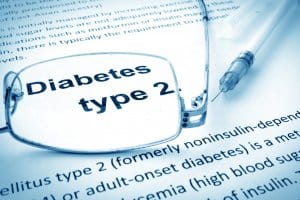
Vegan diets are a great choice for those with type 2 diabetes.
They help to minimize your blood sugar levels, balance your insulin, and help you lose weight. That’s one reason why there have been so many studies undertaken on this topic.
Let’s take a look at two of these studies to give you a more in-depth understanding of this topic.
Each of these studies was performed by impartial research specialists who completed each study according to specific research rules and regulations to ensure accuracy.
Low-Fat Vegan Diets Help With Glycemic Control
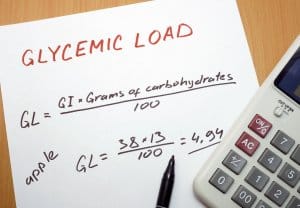
In one study, entitled “A Low-Fat Vegan Diet Improves Glycemic Control and Cardiovascular Risk Factors in a Randomized Clinical Trial in Individuals With Type 2 Diabetes,” a variety of researchers were attempting to investigate whether or not the diet mentioned in the title helped with diabetes more effectively than other types of diets.
Their research took a look at 99 individuals with type 2 diabetes.
Half of these people were given a low-fat vegan diet while the other half followed the American Diabetes Association or ADA dietary guidelines for type two diabetes. They were evaluated at both the beginning of the study and after 22 weeks had passed.
What they found was startling. Forty-three percent or 21 individuals who were in the vegan group had reduced their diabetes medications at the end of the study.
In the non-vegan or ADA group, 26 percent or 13 individuals were able to reduce their diabetes medication successfully.
Another positive find was that A1C fell by 1.23 points in the vegan group compared to the meager 0.38 points in the ADA group. And while there was weight loss in both groups, the vegan group lost double the amount of weight of the ADA group.
The conclusion reached by the researchers at the end of the study found that, while both studies were beneficial for type 2 diabetes, the vegan diet was much more effective. Other similar studies have seen results that matched these.
Further Research Into This Topic

In another study, entitled “A Plant-Based Diet for the Prevention and Treatment of Type 2 Diabetes,” a multitude of research studies were compiled to gauge how successful a whole-foods plant-based diet was in managing diabetes.
I already mentioned this diet before because it is one of the most commonly utilized vegan diets.
The method used in this study was to compile all of the literature available and to gauge what they had to say about this topic.
What these researchers found was that there was a “general consensus” among these studies that a whole-foods plant-based diet was more healthy for preventing and treating type 2 diabetes.
Just as a reminder, the foods that are eaten on this diet include legumes, whole grains, fruits, vegetables, and nuts.
Beyond the type 2 diabetes benefits, the study also found that this type of diet could decrease obesity, hypertension, hyperlipidemia, inflammation, and other forms of severe health issues. In fact, they believed that this diet could also cause a decrease in cancer risk.
This finding was confirmed by the World Cancer Research Fund and the American Institute for Cancer Research.
What are the Health Benefits of Vegan Diet?
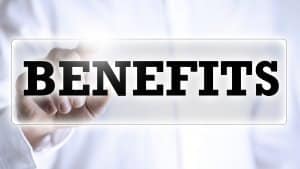
People who eat a vegan diet are doing their bodies and their overall health a great benefit. That’s because vegan dietary plans are incredibly healthy, particularly when compared to meat-centered diets.
While they do have a few risks (which I’ll discuss eventually, they are among the safest and healthiest types of meal plans that you can eat, especially if you want to lose weight.
For example, the study “Nutritional Update for Physicians: Plant-Based Diets” took a look at hundreds of different surveys and found a broad and engaging array of health benefits of veganism.
These benefits were confirmed and cross-examined to ensure that they were accurate. As a result, it is safe to say that these benefits are confirmed, and they include positive improvement for:
Obesity
- Obesity – After reviewing 87 different studies, these research specialists found that a vegan diet helped manage weight gain and could speed up weight loss. They also found that vegans have lower blood pressure and balanced cholesterol levels.
Diabetes
- Diabetes – The potent effect that a PBD has on diabetes cannot be emphasized enough. While I’ve already quoted a few surveys on this topic, this same study found that non-vegans were 74 percent more likely to develop diabetes than those who were vegan.
Heart Disease
- Heart Disease – In one of the studies researched by these specialists, it was found that 82 percent of people who had heart disease did not eat a vegan-friendly diet. Another study also found that vegans had a 73 percent decreased risk of coronary problems.
Mortality
- Mortality – Another study that they researched while compiling their report found that people who had a PBD were at a decreased risk of dying young. They tended to live longer and healthier lives than those who ate meat.
In another study, many of these same benefits were noted, though a decrease in cancer risk and an increase in bone health were also observed.
This study stated that vegan diets that were high in vitamins C and E, iron, folic acid, fiber, and magnesium, were naturally healthier than meat-focused diets. They also found that eating nuts helped to manage the risk of severe heart disease.
Even better, these studies also confirmed the fact that people who ate PBD were also less likely to suffer from extreme anxiety, depression, and other mental health issues.
That’s because it naturally balanced their blood sugar and eliminated problematic fats and other problems that could complicate preexisting conditions.
What Foods Should You Avoid?
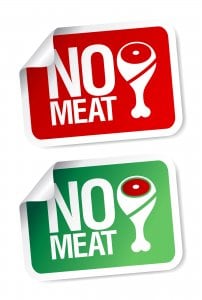
The toughest part of being a vegan is cutting out all of the foods and products in your day-to-day life that contain animal elements. You might be surprised at just how large this list is, and it may appear intimidating. It includes:
All Forms of Meat
- All Forms of Meat – While this may go without saying, you need to avoid all meat when you are a vegan. This list includes beef, organ meat, horse, veal, pork, lamb, venison, buffalo meat, or any other food made from animal flesh.
Poultry
- Poultry – Some vegetarians may make an exception for poultry. Vegans cannot. As a result, you need to cut out chicken, turkey, duck, goose, and even wild birds, such as quail, from your diet.
Fish
- Fish – Seafood is a big no-no for vegans, even though a pescatarian can eat fish. This limitation includes all fish, anchovies, scallops, mussels, crabs, lobsters, shrimp, calamari, and even sauce made out of fish.
All Dairy Products
- All Dairy Products – Vegetarians have the luxury of enjoying dairy products in their diet. As a vegan, you do not. As a result, you have to cut out milk, cheese, butter, cream, ice cream, and even yogurt.
Eggs
- Eggs – Any food that you can get from an animal, including eggs, cannot be eaten. In fact, many vegans will avoid products that use eggs, such as many types of facial creams or moisturizers.
Insect-Derived Products
- Insect-Derived Products – Vegans extend their ban on animal products all the way to the world of insects. As a result, you have to cut honey and any other food made from an insect out of your diet for good.
Just as importantly, you have to avoid foods and additives that are derived from animals.
For example, many types of Christmas candy contains ingredients from animals.
Many types of additives, such as E120, E322, E422, E 471, E542, E631, E901, and E904 also come from animals. Gelatine, carmine, omega-3 fatty acids, shellac, vitamin D3 supplements, whey, casein, and lactose must also be cut out of your life if you want to be vegan.
In fact, many natural flavorings, such as castoreum, come from animals. In the case of that product, it comes from the secretions of a beaver’s anal scent gland. I think that even non-vegans will have a hard time eating food that contains that delightful chemical after knowing where it originated.
In fact, many natural flavors are made in similarly gross ways. Keep that in mind even if you don’t go vegan.
Even worse, many types of bread, beer, wine, pasta, sugar, and peanuts contain animal products. Often, these animal elements are minimal but present.
Even worse, deep-fried food, like French fries, are prepared in animal fat and cannot be eaten by vegans. Thankfully, there are still a large number of foods that you can eat and enjoy every day.
How do I start a Vegan Omad Diet?

Eating a Vegan Omad Diet will still follow the same protocol as the 4″ones” rule. This involves one meal, one plate, one beverage, and one hour.
When eating one meal a day vegan, it is possible to achieve a healthy amount of calories and nutrients while remaining a vegan.
While those who eat animal-based products may find it easier to meet their protein levels, there are many other types of foods that you can enjoy while a vegan.
While starting a vegan omad diet right away may work for some people, starting slower is often a better choice to start before adapting to omad.
What Foods Should I Include in My Omad Vegan Diet Meals?
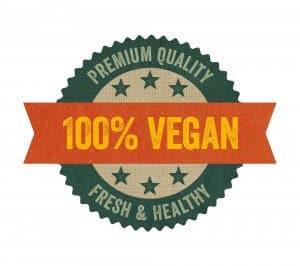
While the list of foods you cannot eat as a vegan is daunting, the list of foods that you can eat is still tasty.
You aren’t going to be eating just salads and spinach but enjoying a diverse array of incredible meals.
This fact is particularly true if you eat foods that are rich in protein. Honestly, high levels of protein are about all that you get from meat-based foods. And the following ingredients are healthier and more full of nutrients than anything you can get off of an animal:
Legumes
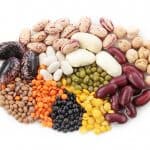
- Legumes – Delicious legumes can make up your protein difference quite easily. They often contain 10-20 grams of protein per cup and even more fiber.
Fruits
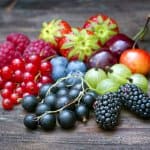
- Fruits – High-quality fresh fruits contain many vitamins and minerals and healthy sugar that will keep you satiated.
Nuts and Seeds
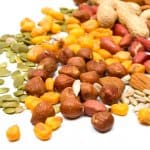
- Nuts and Seeds – Healthy fats are a great source of energy and are available in high concentrations in various types of nuts.
Chia and Flax Seeds
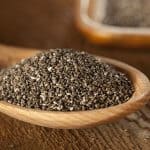
- Chia and Flax Seeds – While seeds should be a major part of your omad diet, chia and flax seeds are particularly healthy, as they contain large amounts of protein.
Tofu
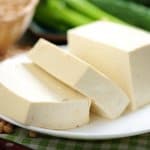
- Tofu – Tofu comes directly from soybeans and is a great substitute for meat. It absorbs flavors very quickly and provides a minimal amount of fat.
Tempeh
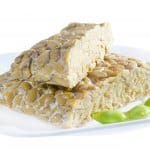
- Tempeh – This meat substitute is also made out of soybeans, but it has a slightly different flavor. As a result, it works well as a replacement for fish.
Seaweed
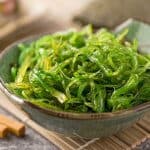
- Seaweed – Though it might not seem appetizing at first, seaweed can be used in a variety of ways. Even better, it contains a high dose of DHA, a fatty acid you cannot get from other types of non-meat foods.
Whole Grains
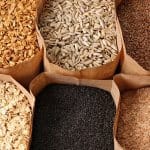
- Whole Grains – Grains are one of your primary sources of nutrition on a vegan diet. They are great sources of complex fiber, carbs, vitamin B, magnesium, and iron.
High-Quality Vegetables
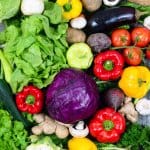
- High-Quality Vegetables – Delicious vegetables are rich in vitamins and nutrients and will make up a heavy part of your daily omad diet. Try to focus on leafy greens but integrate corn, potatoes, and other healthy veggies as well.
Try to eat as many of these foods as you can into your meals every day. Make sure that you alternate what type you use to avoid getting bored. For example, you can integrate tempeh on one day, tofu on another, and vary the vegetables and fruits you eat with these meals.
Change Up Your Omad Diet Vegan Routine to Avoid Boredom
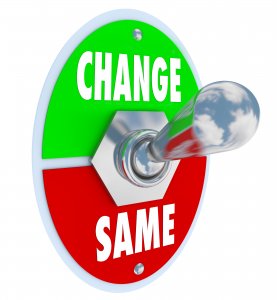
Make sure that you switch up the types of foods that you ingest when on vegan omad diet to ensure that you don’t get bored.
For example, you should make sure to integrate various vegetables, such as cucumbers, celery, carrots, broccoli, and cauliflower into your omad diet to create a diverse and engaging variety of meals.
And make sure that you also change up the ways that you prepare food. Baking food is a good step because it helps to avoid getting oil into your food or causing issues with frying.
Try to steam your vegetables, though, as this will help them hold the maximum amount of vitamins and minerals.
What Supplements are Beneficial for a Omad Vegan Diet?
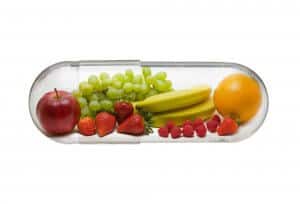
Though a skilled vegan can work their way around many of the deficiencies caused by not eating meat, they aren’t likely to beat them all.
In fact, it is impossible to avoid missing out on some nutrients without some supplements.
A study, entitled “Adherence to Nutrition Recommendations, Use of Supplements Essential for Vegans,” found that vegans who wanted to be healthy needed to use a broad variety of supplements.
Try to take all of these vitamins and minerals every day to avoid being malnourished.
Here is a daily vegan supplement that I highly recommend:
Here are important vitamin and minerals to look for in your daily vegan supplement.
Vitamins B12
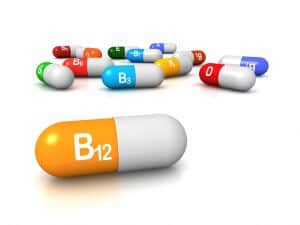
Vitamin B12 is an essential vitamin because it improves the strength of your body’s nervous system and helps make your blood cells healthier. Unfortunately, vegans often suffer from a deficiency of this vitamin. When they experience this deficiency, they will suffer from a variety of symptoms, including:
- Anemia
- Numbness in their extremities
- Dizziness
- Weak feelings
Vegans often suffer from this deficiency because B12 is most common in animal products. It is particularly rich in fish and various types of red meat. Unfortunately, there aren’t a lot of plant foods that contain high levels of this vitamin. Even worse, our ability to absorb vitamin B12 decreases as we age, meaning that vegans will have to fight this issue even more.
Vegans who don’t take an appropriate B12 supplement may cause damage to their nervous system that cannot be reversed.
That’s why dietary professionals suggest taking one supplement that contains at least 10 micrograms of B12 per day. You can also ingest a weekly supplement that provides 2,000 micrograms.
That said, you can also eat fortified breakfast cereal to get a healthy dosage of B12. Eating this cereal can provide you with up to three micrograms of B12 every day.
However, your supplement levels are higher than this level because supplements are inherently less efficient than eating foods. Keep that in mind when taking any vitamin supplement while on a vegan diet.
Vitamin D
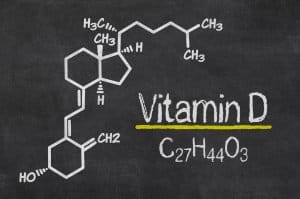
Vitamin D is essential not only for its many benefits but also for the way it helps you absorb other types of vitamins.
Its primary purpose is to help your stomach digest and absorb calcium and phosphorous.
Therefore, suffering from a deficiency in this vitamin will also cause you to experience lower levels of these nutrients. As a result, it is critical to take this supplement very serious.
However, it also has other benefits that are important to understand. For example, it can help regulate your mood, improve your memory, fight off diseases, and increase your muscle strength.
The frustrating thing about this vitamin is that very few foods possess it. And these foods are typically not available on a vegan diet, such as various meats and cheeses.
However, while vitamin D deficiency is common in vegans, it is a problem that has spread around the world.
Many dietary specialists believe that there is a global pandemic of vitamin D deficiency that is causing various health issues with whole generations. As a result, it is essential to take at least 10 micrograms of vitamin D every day even if you are not a vegan. Vegans should probably take five micrograms more to ensure health safety.
However, you should also try to get outside regularly and in the sun. That’s because skin exposure to UV rays can increase your levels of vitamin D.
Make sure that you wear sunscreen to avoid burns if you plan on being in the sun for extended periods. And if you don’t like sitting in the sun, you can open your windows during the day to receive increased levels of sunlight.
Long-Chain Omega-3s

Various studies have found that long-chain omega-3 fatty acids may provide you with many heart-health benefits.
They are also considered to be essential for various other health processes and may improve your mental health. While these findings are still heavily under debate and need more verification, many in the medical community believe they are accurate.
Most non-vegans or vegetarians get a majority of these fatty oils from fish.
However, there are also many types of seeds and plants that contain these oils.
Flaxseeds, chia seeds, walnuts, hemp seeds, and soybeans also contain healthy levels of these fatty acids. However, studies have also shown that vegans are consistently very low on this beneficial fatty acid.
Therefore, it is critical to take a variety of supplements to ensure that you get enough in your diet every day.
Most experts state that a minimum of 250-500 milligrams of these fatty acids is essential for vegans. However, many of these supplements will contain animal-based products that will problematic for vegans to ingest without breaking their dedication to veganism.
Thankfully, many types of vegan-friendly omega-3 supplements available don’t use fish oils. These include products from companies like Ovega-3, Amala Vegan, DEVA, Nordic Naturals, and Flora.
These supplements often focus on algae and seaweed, as these two plants are usually the highest in natural and vegan-friend omega-3 fatty acids.
Iodine
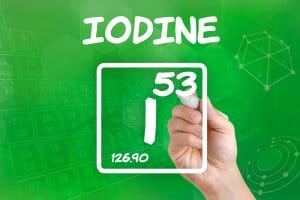
Vegans aren’t the only ones who suffer from low levels of iodine in their blood.
Many specialists believe that few people around the world get enough of this mineral in their diet every day. And this is a major problem because iodine keeps your thyroid healthy. The thyroid controls your metabolism, and a deficiency can cause metabolic concerns that lead to weight gain. Symptoms of a deficiency in iodine include:
- Sluggishness
- Low energy levels
- Extremely dry skin
- Weight gain in spite of a low-calorie diet
- Numbness and tingling in your hands and feet
- Depression and other mental-health issues
This problem is so common in vegans because many of them are unaware of the important part it plays in their diet. Some surveys have found that a vast majority of vegans do little to balance their iodine when changing their diet. And, unfortunately, there is a strong chance that their diet doesn’t contain enough of this mineral, as it is most common in fish and other types of seafood.
In fact, studies have shown that vegans often have half the blood iodine levels of vegetarians and those who eat meat.
Obviously, this is a significant deficiency that can be very traumatic to your health. And while you can get some iodine from foods such as seaweed and even macaroni, it is best to take a supplement to ensure that you get enough.
Vegans should be taking at least 140 micrograms every day in a non-animal-based supplement.
Iron
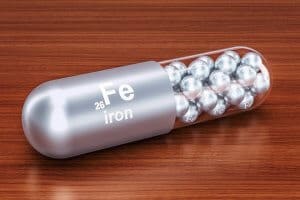
Iron is a mineral that is necessary for producing healthy DNA and red blood cells.
However, it can also carry oxygen in your blood and helps to improve your metabolism. People who suffer from a deficiency of iron typically fall into anemia and are often quite tired. Iron deficiency can even lead to a weaker immune system.
However, iron is a complex mineral because it is split up into two different types.
Heme iron comes from animal-based products, such as meat and cheese. Non-heme iron comes from plant-based products, such as fruits and vegetables. Both are healthy, and vegans have more than enough options to choose from when trying to get iron in their diet.
The drawback here is that heme iron is more readily absorbed in the body, which means that vegans are often at serious risk of developing a deficiency.
Some experts state that vegans typically need nearly double the amount that non-vegans ingest.
As the traditional recommended daily amount is about eight milligrams for men and 18 milligrams for women, vegans may need as much as 16-36 to compensate.
That said, too much iron can also be a significant problem. Some believe that there is an increased risk of cancer associated with excessive iron ingestion. Others have associated hair loss and even organ damage to large doses. In fact, these issues may occur in doses as low as 40 milligrams per kilogram. So make sure that you talk to your doctor before taking heavy doses of this supplement.
Calcium
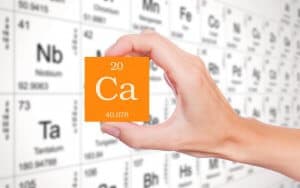
Calcium is the most important vitamin for your bone health.
Without healthy levels of calcium, you might suffer from brittle or weak bones that are more likely to break. Even worse, you could be setting yourself up for issues such as osteoporosis later in life. Vegans, like everyone else, require a healthy level of this vitamin.
While experts believe that vegans may need less calcium than others, they still need a hefty dose.
The recommended daily amount of calcium most people need is 1,000-1,200 milligrams every day. However, vegans can take a lower amount and get similar results. However, it is crucial to avoid getting less than 525 milligrams, or you run the risk of bone fractures.
Unfortunately, studies have found that vegans just don’t get enough calcium in their diet. There are a few reasons that this problem is likely.
Most people get a majority of their calcium from milk and cheese products. As vegans cannot eat these foods, they are typically at serious risk for health problems. That’s why a supplement of at least 525 milligrams is essential.
Like with iron, though, it is possible to take too much calcium.
If you take more than 1,500 milligrams or more of calcium every day, you are at an increased risk of developing kidney stones. You may also interfere with how your body absorbs other types of minerals. Your 525-milligram supplement should be more than enough for most vegan’s health needs.
Zinc
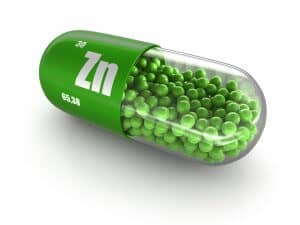
Zinc is one of those nutrients that people often neglect in their diet. It is particularly an issue for vegans because foods that contain zinc are primarily based in animal products.
However, taking a healthy amount of zinc can improve your stool density, boost your memory, prevent certain diseases, increase your healing rate, manage age-related diseases, help with macular degeneration, and even boost your fertility.
That said, vegans are going to have a difficult time getting enough zinc in their diet because very few foods contain zinc. Some nuts, seeds, legumes, and tempeh and miso may help to improve zinc absorption from foods like grains, wheat germ, tofu, and beans.
Even these steps won’t get you enough zinc, though, as studies have found that vegans need to get 50 percent or more of their zinc from supplements.
That’s why it’s probably a good idea to take a zinc supplement every day.
Women should aim for at least eight milligrams every day while men need 11 milligrams. That said, you should take no more than 40 milligrams per day, or you will suffer from zinc poisoning and experience symptoms like nausea, confusion, vomiting, and dizziness.
Before starting this supplement, it is essential to understand that there are different types of zinc. Zinc gluconate, zinc citrate, zinc picolinate, and zinc oxide are all available on the market. Each of these types is typically easy for most people to absorb.
Unfortunately, some people have a harder time absorbing zinc oxide. As a result, it is essential to talk to your doctor about this supplement before starting.
Some vegans may also want to take regular protein supplements if they find themselves struggling to get enough of this nutrient.
Fiber shouldn’t be a problem because you’ll be eating foods that are heavy in these items.
Unfortunately, failure to take these supplements could cause complications that make your diet more difficult.
What are the Risks and How Do I Minimize Them?
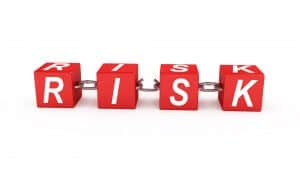
Harvard’s health department put together the best discussion I’ve yet seen of the risks inherent to veganism. I’ll list these risks below to give you an idea of what they are and then discuss how to minimize them:
Lack of Protein
- Lack of Protein – Vegans who don’t carefully prepare for it may end up suffering from low levels of protein. This lack can cause muscle-development issues and may even affect your growth. Concentrate on eating protein-rich soy to avoid this issue..
Low Levels of Vitamin B12
- Low Levels of Vitamin B12 – Vegans are constantly low on this vitamin because it only comes in animal products. Low levels may cause neurological complications and anemia, but eating foods that are rich in other B vitamins can help with these issues.
Weaker Iron Absorption
- Weaker Iron Absorption – The meat in iron is easier for your body to absorb than the type in plant-based foods. As a result, some vegans are perpetually low on this vital nutrient and may suffer from anemia. Take double the normal dose of your iron supplement to avoid this problem.
Zinc Deficiencies
- Zinc Deficiencies – Diets that are high in whole grains, seeds, and beans reduce your zinc absorption. Supplements can help avoid this problem. Like with iron, take more than you would normally ingest.
No Omega-3 Fatty Acids
- No Omega-3 Fatty Acids – These fatty acids are heavily concentrated in fish and vegans may lack them. However, flax seeds and walnuts can help make up the difference.
Increased Risk of Injuries and Disease
- Increased Risk of Injuries and Disease – The vitamin and mineral deficiencies that are common in any vegans may make them more susceptible to serious injuries or diseases due to a weaker immune system.
Bone Injuries
- Bone Injuries – The lack of dairy in your diet will make bone injuries more likely. As a result, it is important to seek out calcium alternatives that can help avoid this issue.
Honestly, most of these risks are based on deficiencies that are best combated by slightly altering your diet or taking supplements.
That said, you should talk to your doctor about these risks to ensure that you don’t hurt yourself pursuing this dietary change.
What Tips Can Help Me to Stay Full on a Omad Vegan Diet?
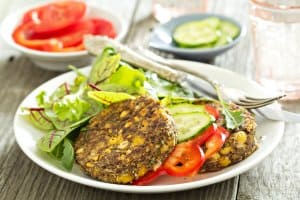
When you get started on a omad vegan diet, you are going to struggle to feel full.
This problem is something that all beginner vegans experience. Thankfully, there are many different ways that you can manage this issue.
The following solutions are designed as ways to either prepare your food or eat it and will control your vegan-related hunger pangs quite well.
- Eat Healthier Foods
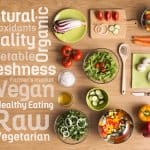
It might seem obvious, but eating larger amounts of healthier foods can help you feel fuller for a more extended period. While some types of foods may work oppositely (junk food will only increase your hunger levels), healthy vegan-friendly foods will fill you up with protein, fiber, and help you feel satiated. Ironically, this can then keep you from overeating between meals and protect your waistline.
- Don’t Neglect Starchy Vegetables
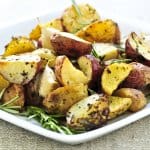
Starchy vegetables are a great way to fill up because they are stuffed with a large number of carbohydrates. In fact, many of these vegetables contain large amounts of fiber and some healthy sugars. These items will fill up your stomach and make you feel more satiated after a meal. Just as importantly, they are rich in vitamins, nutrients, and other elements.
- Work on Your Stress Relief

Stressed eating is a common problem that can severely ruin a diet. That’s because stress naturally triggers the feeling of an empty stomach and may make you feel more hungry than you are in reality. As a result, you may end up eating more than is necessary. Avoid this problem by meditating and performing other stress-relief steps. In this way, you can manage your anxiety and avoid severe hunger.
- Always Cook With Healthy Foods

While junk food may be fun from time to time, healthy foods will naturally fill you up. That’s because they are filled with vitamins, nutrients, protein, fiber, and healthy fats. Your body craves all of these items on a daily basis. If you eat these healthy types of food, you will naturally suppress your hunger by giving your body exactly what it needs.
- Cut Out Salt and Oil
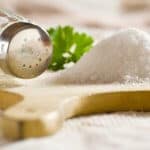
Try to limit your salt and oil intake as much as possible. Both tend to excite your hunger and make it more difficult for you to avoid hunger between meals. Even worse, oil tends to take up room in your stomach without satiating your appetite. As a result, you’ll feel more hungry and struggle to stay on your vegan diet.
- Prepare Your Meals
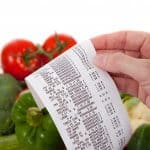
Try to prepare your meals in advance. Doing so will end up making you hungry because you’ll be ill-prepared to eat healthy foods. As a result, it is smart to know what you’re going to make in advance and always to have healthy emergency snacks available if you cannot. Foods like fruits and almonds are a great choice because they fill you up and provide you with healthy nutrients and vitamins. Make sure, though, that you don’t neglect your meals and spread them evenly throughout the day.
- Create a Balanced Plate
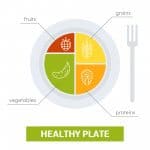
During your meals, don’t fill up with only vegetables. Instead, expand to grains, fruits, and even protein-rich foods like tofu. This diversity not only makes your meals more appealing but fills you up more fully. Just as importantly, it satisfies a broader range of your hunger needs, making it easier for you to avoid hunger in between your normal meals.
- Flavor Your Foods
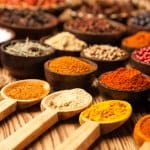
I understand that a plate of vegetables may appear very bland and tasteless. However, you can avoid this issue by flavoring them with various herbs and spices. This step is also great because some herbs can naturally suppress your hunger pangs. I suggest cumin, smoked paprika, oregano, and other healthy spices.
- Change Things Up

Dietary boredom inspires excessive hunger because your body craves variety. Try to prepare your foods in multiple ways to avoid this issue. Try grilling, roasting, and braising to expand your cooking techniques. Combine different types of foods in unique ways to bring out more flavors and to satisfy your hunger.
- Eat Slowly and Carefully

In our busy modern society, many of us feel like we don’t have time to sit down and enjoy a meal. That doesn’t have to be the case. Relax while you eat and take only small bites. Make sure to chew each bite thoroughly to break it down into more satisfying sizes. Eating slowly in this way will also help because your body takes 20 minutes or more to feel satisfied. As a result, you won’t overeat.
What Kinds of Foods should I eat to stay full on an Omad Vegan Diet?
The struggle to feel satisfied while on a vegan diet is real, but it is much easier to handle if you eat the right foods. The following ingredients are among the healthiest foods a vegan can eat. However, they also make you feel satisfied and prevent hunger pangs.
- Hummus
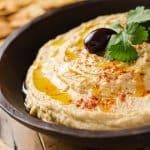
Hummus is one of those awesome foods that can be used in a variety of ways. You can use it as a spread, a dip, or even bake with it. It is made out of healthy chickpeas that will fill you up quickly. It is particularly useful if you pair it with richer vegetables because it is full of fiber and will make you feel fuller for a lengthier period.
- Chia Seeds
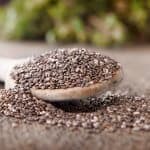
Few people regularly eat chia seeds, which is a real shame. These seeds are not only delicious in a wide range of meals but can help you feel full. That’s because they absorb a large amount of water and expand inside of your stomach. As a result, you will feel full and satiated for an extended period. They also have a shockingly large amount of fiber (nearly 10 grams) per a one-ounce serving. Yum!
- Almonds
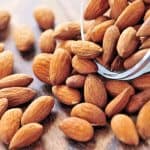
If you need a healthy vegan snack that will fill you up, try a cup of almonds. These delicious nuts can be used in a variety of baking situations and create an intense feeling of fullness. That’s because a one-quarter cup serving of almonds has 4.5 grams of fiber. A whole cup would have nearly 20 grams, making them a very satisfying and healthy snack.
- Oatmeal
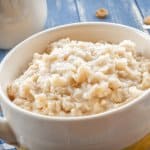
Oatmeal is great for vegans because it will help you feel satisfied long into the day and provide you with high-quality energy. That’s because oatmeal is one of those superfoods that is both high in protein and multiple types of fiber. Avoid adding sugar, though, to get the most benefit.
- Avocados
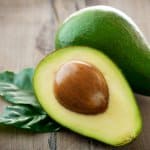
Fat isn’t always necessarily your dietary enemy. In fact, healthy foods that are high in fat (like avocados) can make you feel fuller for a longer period. The amount of and type of fat in this superfood is healthy and beneficial for your body. Even better, a single avocado has about 14 grams of fiber, making them an excellent choice for a omad vegan meal.
- Brown Rice
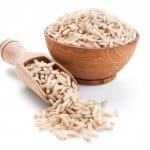
Delicious brown rice is a staple meal for many vegans. It not only has four grams of fiber per cup, but it also contains five grams of protein and only two grams of fat. While white rice may be the easier and more enjoyable type to eat for many people, try to integrate brown rice into your omad vegan diet in a variety of ways, such as a side dish or as a main meal.
Other Beneficial Foods to Full You Up
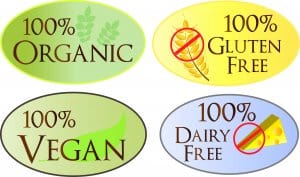
Here are some of the healthiest and most beneficial foods that I haven’t yet discussed:
- Lentils
- Sweet potatoes
- Barley
- Quinoa
- Squash
- Carrots
- Yams
- Black beans
- Peas
- Peanuts
- Flax seeds
Vegan Omad Diet Meal Idea
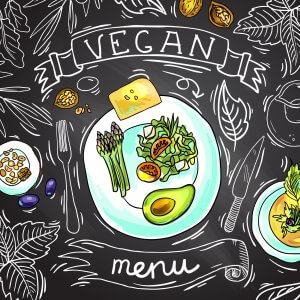
This meal idea is an example of what a Vegan Omad Meal would look like.
You’ll get the chance to enjoy a variety of delicious foods, all of which are high in fiber and protein. They are also rich in a multitude of vitamins and minerals. Make sure that you give yourself an hour or two to prepare this hearty meal.
Start out by making two vegan pancakes and top them with one-quarter cup of blackberries.
You can then add peanut butter to increase the protein level. This delicious breakfast food will provide you with about 300 calories and 10 grams of protein. Try to push the pancake to the side so that you can add some other healthier foods to the plate.
For example, you can add a one-third cup of edamame pods to your plate and flavor them with a little bit of salt.
These pods are delicious and filled with nine grams of protein. They are also rich in fiber and should provide you with the boost you need to improve your overall meal for the day.
Next, you can toast two slices of veggie spread and top them with one-third cup of white beans, two tablespoons of hummus, one-half cup of sliced cucumber, one-quarter cup of sprouts, and one tablespoon of unsalted sunflower seeds. This food contains just 300 calories and gives you 16 grams of protein.
Make sure that you soak the white beans and cook them for at least an hour to make them soft. Add a plum to the side to boost your protein levels by eight grams.
Lastly, you can create a 500-calorie dinner-style falafel. Top this falafel with dressing like a raspberry vinaigrette and add various vegetables, such as tomatoes, spinach, and other foods on top. The beautiful thing about this particular dish is that you can condense it onto a smaller area on a plate and make it easier to avoid getting food mixed up.
This particular meal will give you around 1,200 calories, about 52 grams of protein, 35 grams of fiber, 60 grams of fat, and approximately 137 grams of carbohydrate.
The one downside of this meal is that you’ll get around 2,000 grams of sodium. However, this is within a healthy recommended daily amount but may be high if you are trying to keep your sodium levels low.
Vegan FAQ
Q: Can vegans eat out?
A: Finding vegan food when eating out isn’t as hard as you might imagine.
There are many different vegetarian restaurants available that also have vegan options. However, you can also go to a variety of different non-vegetarian restaurants to find vegan foods.
For example, restaurants have vegetarian options that can be tweaked to be vegan.
However, make sure that you ask about any oils that were used in the preparation of these dishes. You may be surprised to find they use animal-based oils.
Q: Is it true that vegans are deficient in protein?
A: While it is true that an unbalanced vegan diet could lead to a protein deficiency, that doesn’t have to be the case. A large number of vegans are very skilled at integrating protein into their diet using a variety of different food types, such as beans and lentils.
In fact, many vegetables are high in protein, such as broccoli and spinach, that you can use in the place of meat. A failure to adjust your omad diet in this way could result in a protein deficiency that could be very troubling and problematic for your health.
Q: How can I tell if something is vegan?
A: This question is very tough because many processed foods contain trace amounts of animal products. For example, spinach in a can may include some animal oil just because it was prepared on a machine that processed animals foods.
It is also difficult to tell if the food prepared in a restaurant is indeed vegan. Going to a vegetarian restaurant and ordering vegan options is your safest bet. However, there’s still a chance that a small amount of animal product may contaminate your meal. If you want to avoid animal-based foods altogether, you may need to buy only raw food and prepare your meals at home.
Q: What should I do if I get sick from my vegan diet?
There is a chance that you might get sick when you switch to a vegan diet. This sickness is usually quite mild and due mostly to your body adjusting to a new dietary routine. Most of the time, it should go away in a few days and rarely, if ever, come back.
Typical symptoms of this sickness include lightheartedness, nausea, confusion, and other issues. If they persist longer than 2-3 days, you should see your doctor right away. Unfortunately, you may be suffering from some form of undernourishment that needs immediate attention.
Q: What is the Vegan Trademark?
A: Many foods are stamped with what is known as the Vegan Trademark. This mark is put on foods that have been certified as vegan-friendly because they have no animal products and were processed in such a way that the chance of contamination was minimal to impossible.
If you don’t see this trademark on food that states it is vegan-friendly, make sure to check the ingredient list. It might have been prepared in a facility that processes animal-based foods. While the chance of contamination is minimal here, it could still happen.
Q: Are all vegetable oils vegan?
A: While most animal oils have been designed to prevent contamination with animal-based products, there is still a chance that contamination could occur. However, some oils may be problematic because of the ways they are prepared.
For example, palm oil is vegan because it is made out of palm leaves. However, some palm oil companies may contribute to bad animal practices that cause suffering, such as cutting down animal habitats.
Q: Is owning a pet against veganism?
A: Many vegans own and love cats, dogs, and other types of pets. While they may not support these animals being used for entertainment purposes, they fully support responsible and caring pet ownership. In fact, they often own multiple animals or own farms where animals are allowed to live a happy life.
Q: Why is honey inappropriate for vegans?
A: While not all vegans shun the use of honey, many argue that it is an animal-based product. Honey comes directly from bees and is taken from them to be used by humans. In many instances, bees are harmed or even killed when honey is being gathered.
In fact, many vegans are firmly against any process that kills a large number of insects. Insecticide and other control methods are often frowned upon by some vegans. However, most support non-fatal pest control as a way of protecting crops. Again, this concern about this issue will vary depending on your beliefs.
Conclusion
By now, you should have a pretty good idea of whether or not an Omad Vegan Diet is right for you.
The benefits and risks have been described in detail, and you’ve read a few studies that confirmed the points discussed herein.
If you are interested in an vegan omad diet or committing to this philosophy, you need to make a few lifestyle changes.
Cutting out all animal products from your diet may be a difficult change for some in the long-term.
Have more questions? Be sure to visit our community forums or omad diet guide.
Resources
Vegan Society: Definition of Veganism
Veganism: What is Veganism?
PETA: Stuff Your Face With Plants and Still Lose Weight, Study Finds
Physicians Committee for Responsible Medicine: New Study Shows Vegan Diet Improves Diabetes Markers in Overweight Adults
Vegan: FAQ
Vegan Society: General FAQs
Peaceful Dumpling: Always Hungry On A Vegan Diet? 3 Ways To Feel Full & Have Energy For Days
One Green Planet: How to Stay Satiated on a Plant-Based Diet
One Green Planet: How to Stay Satisfied Throughout the Day on a Plant-Based Diet
The Kitchn: Five Tips for Making a Vegan Meal Feel Filling and Satisfying
Healthline: 11 Foods Healthy Vegans Eat
Vegan Food and Living: 28 Foods and Ingredients to Avoid on a Vegan Diet
Healthline: 7 Supplements You Need on a Vegan Diet
Food Revolution: 5 Key Supplements for Vegans and Vegetarians to Thrive on A Plant-Based Diet
Livestrong: Risks of Vegan Diets
Healthline: 7 Supplements for Vegans
Medline Plus: Vitamin B12
The BMJ: Vitamin B12 Deficiency
The Vegan Society: What Every Vegan Should Know About Vitamin B12
The Vegan Society: Why Do We Need Vitamin D in Our Diets?
Eating Well: 7-Day Vegan Meal Plan – 1,200 Calories
Livestrong: 1,200-Calorie Vegan Meal Plans
Eat This Much: 1,200-Calorie Meal Plans for Vegans
Personal Nutrition: 1,200-Calorie Vegan Diet Plans
Healthline: How Much Omega 3 Should You Take Per Day?
The Vegan Society: Iodine
Vegetarian Times: Iron: How Much is Enough?
Happy, Happy Vegan: Calcium Supplement
Vegan Health: Zinc Supplements



